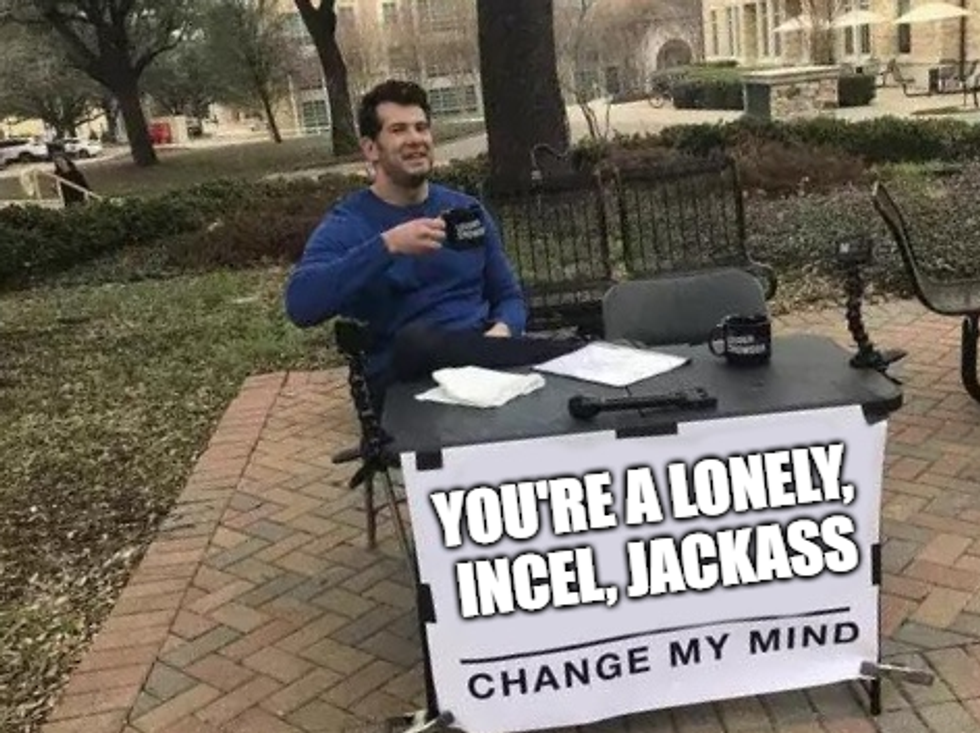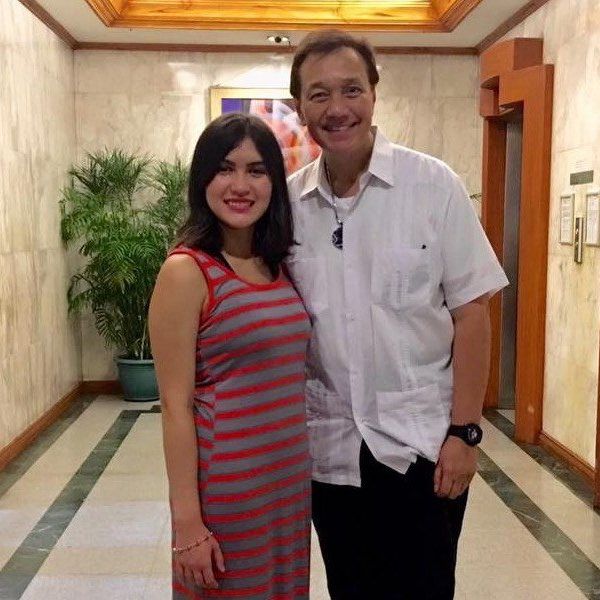A couple of months ago, I had an altercation with a fellow I've known for the majority of my life. For the sake of anonymity, let's call him..."Chintzy."
Chintzy started an argument with me on Facebook over the finer points of what "legally" constitutes sexual harassment after I expressed frustration over an encounter with a strange man earlier in the day.
Funny, that. A man explaining to a woman something she already knows all too well. Pretty sure there's a handy term for that...
Anyway, I was happy to engage in a debate with Chintzy. I am not a gung-ho feminist who thinks even being looked at a certain way is equivalent to rape. I am level-headed, and when I have an opinion about something, it's usually grounded in something substantial, so I've got no issue defending what I believe in. And because I'm an unabashed knowledge hoarder who is always trying to learn and grow, any discussion--even a debate--is sure to bring valuable insight that can help me form a new opinion, or confirm the basis for the one I already hold.
A funny thing happened in this particular back and forth, and it's not the first time I've dealt with it. Chintzy's attacks turned away from the black and white facts and turned into assumptions about my character (how "emotional" I was being for seeing the situation I encountered a harassment, how I must be exaggerating the situation because his sister who is older than me has gone her whole life without being harassed, so there's no way other women get harassed regularly, etc.) as well as whining about how good guys can't get a date because all women see a guy simply saying "hi" as sexual assault. You know, that argument where you have a sneaking suspicion that his bad luck with women is definitely brought on by something he has done but won't admit, but it has jaded him to the point where he thinks all women are just liars who overreact about everything.
He also vaguebooked on his own page a quote from the ever-so-insightful Ben Shapiro, "Facts don't care about your feelings," alongside a Louder with Crowder-esque, "Your past experience doesn't have any bearing on the facts of a current argument. Change my mind."
Later in the day, Chintzy's comments on my post disappeared. Assuming he just deleted them (Maybe he changed his mind? Nah, probably not.), I tried to view his profile and was greeted by this:

If you've ever been on the internet in your life, you probably know this screen and what it means.
Chintzy blocked me, and I'm heartbroken. Just utterly crushed.
I mean, honestly, save for how much it kind of sucks to lose a connection with someone you have known for most of your life, seeing their true colors come out before they not only flee from an argument they're losing, but take the extra step to BLOCK you so they don't have to get triggered by just seeing your presence online ever again...it's all kind of funny. Especially given the context of the situation.
"Change my mind, but I'm going to block you before I run the risk of having your argument, you know, actually change my mind."
Anyway, this post really isn't about Chintzy or the argument he was presenting, but the outcome.Chintzy didn't like what I had to say about my experiences with sexual harassment and how they didn't align with what he believed about how men treat women, so Chintzy blocked me.
This has happened a lot to myself and people I know over the last couple of years. And not even over serious subjects.
It's no secret that times are tense and regardless of which side of the political line you fall on, people are angry at the other side, and even non-conforming people on their own side.
I have had two cousins, one uncle, and countless friends block me since the lead up to the election of 2016. Not just delete, but block. And most of the time, there was no "moment" that led to it. We never had a debate. We never even shared our ideas personally to one another. I might have simply shared an article about Russian interference in the election, and the next thing I know, I was blocked.
It's just a weird mindset to hold. I have friends and family who I care about deeply who hold opinions I stand in stark opposition to, but it doesn't change how much I value our connection. We might have voted for different candidates. We might be on opposite sides of the fence about gun control or immigration or women's rights, but I still care about them and want to hear what they have to say.
Even if what they say doesn't sway me, even if the more they talk the more I see my side as more valid, I want to hear it. Not only to just hear them out like people do when they're interested in real, human connection, but because we'll never know what we're up against if we shut out any voice that doesn't mirror our own.
There are times where I just get so sick of seeing contrived BS on my feed--some picture of a kid who has clearly been abused with some unrelated line about "Satanist Pedophile Democrats" and a choice needing to be made in the midterm election--and I just want to block it all out. Life would be easier, for a time, if I wasn't faced with reading about things that not only go against beliefs I hold, but are disgusting and completely false (and provably so).
But that's no way to live. If you block out everything you don't want to hear, the reality of it is going to come rushing in on you at some point. We can't fortify those walls forever.
How can you know what you're fighting against if you don't even let yourself hear the other side?
How are you growing as a person or forming opinions with a solid foundation when you refuse to hear all the information that's out there?
You're not fostering sincere dialogue with other people when you post something like, "If you voted for Trump/Clinton, just delete yourself from my friends list now so I don't have to bother doing it later."
The echo chamber so many of us are holing ourselves up in will become our tomb if we're not careful.




















